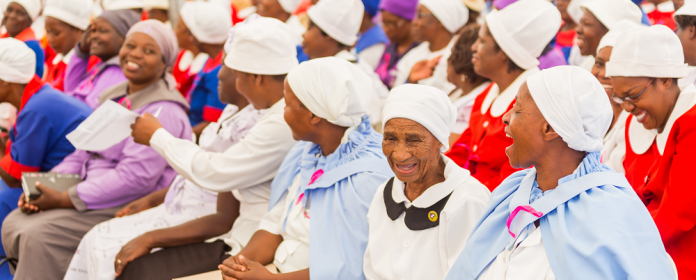BY NOKUTHABA DLAMINI
Zimbabwe’s church leaders say the government’s decision to allow the resumption of church services for only those vaccinated against Covid-19 will be difficult to implement.
The government this week said churches can now resume physical services on condition that they allow only vaccinated people to attend.
Zimbabwe banned all gatherings, including church services, in June at the onset of the third wave of the Covid-19 outbreak.
The Zimbabwe Heads of Church Denominations (ZHOCD) – the biggest body representing church leaders in the country – said churches will find it difficult to abide by the rules set by the government to resume services.
“The church will find it very difficult to turn people away because they do not have a vaccination certificate,” ZHOCD warned.
“However, would it be responsible to meet in an uncontrolled environment where possibilities of spreading the virus are high?
“Practically, less than 10 percent of the population has been vaccinated.
“There is a group of citizens that does not get vaccinated due to age or because they have not yet had a chance to be vaccinated.”
On Thursday, only 1.1 million Zimbabweans had been fully vaccinated.
In some largely rural provinces such as Matabeleland North, the vaccination rates are even lower due to lack of access to health facilities.
Some villagers like those from Nkayi’s ward 19 are expected to walk over 15 kilometres to access the nearest clinic in Tohwe or go to Nkayi Hospital to get their doses.
Only 68 407 people had been vaccinated in Nkayi on Thursday out of a population of 416 600.
ZHOCD said although churches “cautiously” welcomed the opening up of society, business, and public life after almost two years of restrictions because of Covid-19, the conditions for the restart of physical services must be well thought out.
“Theologically, the church is an open and welcoming space for everyone with no restrictions. No one qualifies for church service as it is a place of God’s grace,” the church leaders said.
“It will be difficult for the church to deny people the chance to receive the means of grace simply because they have not been vaccinated when access to this vaccination is restricted.
“The ZHOCD recommends that the Health ministry is asked to provide the detailed protocol for reopening churches clarifying all the grey areas such as how the licence affects those below the age of 18 who are not being vaccinated.”
The church leaders also asked the government to consult them whenever it makes decisions affecting churches.
ZHOCD said churches can assist in encouraging their members to take the Covid-19 vaccines.
“We are confident that getting more people vaccinated should contribute to herd immunity and we believe that persuasion and clear information sharing should remain the main tool to achieve this target,” the church leaders added.
“We encourage our members to demonstrate leadership and responsibility as we open our sit-in worship services and we also respect those churches who may choose to continue conducting online services until the nation reaches herd immunity.”
“We are confident not only the church, but wider society will be opening up sooner than later if we contribute to the minimizing of the spread of the virus.”
Nick Mangwana, the government spokesperson, took to Twitter to express his frustration over the church leaders’ response to the Cabinet decision.
“When you are banned from having people in the pew, no problem,” he tweeted on Friday.
“They you are told, now you can have people in the pew subject to safety measures you have a problem with it?
“God help us!”

 Slider3 years ago
Slider3 years ago
 National4 years ago
National4 years ago
 Tourism and Environment4 years ago
Tourism and Environment4 years ago
 Opinion4 years ago
Opinion4 years ago
 Special reports4 years ago
Special reports4 years ago
 National4 years ago
National4 years ago
 National3 years ago
National3 years ago
 National3 years ago
National3 years ago



